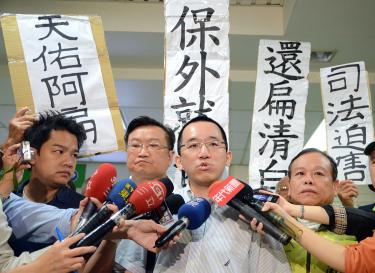The family of jailed former president Chen Shui-bian (陳水扁) yesterday urged authorities to pay more attention to Chen’s health problems, in light of the fact that he has previously suffered a stroke.
Chen Chih-chung (陳致中), son of the former president, said a team of neurosurgeons and urologists from major medical centers should be allowed to examine his father.













